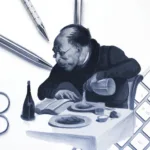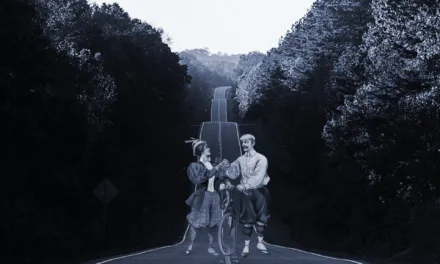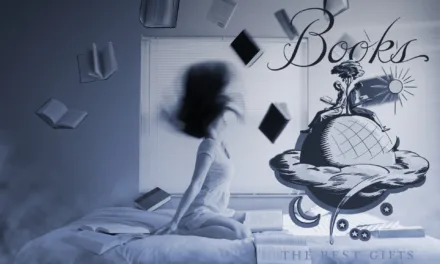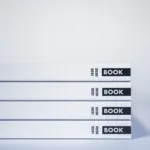
Explore Experimental Writing Techniques to Overcome Writer’s Block

If you’ve ever experienced writer’s block, you know how frustrating and demoralising it can be. There are plenty of ways to break through it, but sometimes doing something completely different and off-the-wall is exactly what you need to get your creativity flowing again.
By experimenting with different strategies and approaches to writing, you can discover what works for you in overcoming writer’s block.
What is writer’s block?
Writer’s block is a common term used to describe the feeling of being unable to think of new ideas. Writer’s block is a real phenomenon, but not in the way that many people think. It’s a psychological barrier that can prevent a person from being able to complete a writing task, rather than something tangible. It’s a state of mind, so whether you believe in it or not, it feels real to the writer experiencing it.
Essentially, writer’s block is a lack of motivation or inspiration, rendering a writer unable to produce new work. They feel “blocked” in their ability to write. It can be caused by various factors, including not having a clear subject to write about, fear of failure, a lack of inspiration, or simply not having the energy or motivation to write.
There are dozens of common ways that authors overcome writer’s block, including taking breaks, brainstorming new ideas, freewriting, and writing prompts, but I want to explore some more experimental techniques you can use that will do so much more than just get you started. They’ll also help you approach your work in new and interesting ways to really get you thinking.

Switch genres
Sometimes big changes are exactly what you need to get out of a rut. You might have had an idea going into writing your story, but the further you get into it, the more nothing seems to be working as expected.
I know it sounds drastic, but sometimes switching genres is a great way to shake up your idea.
I’ve done this myself if one of my recent projects. I was initially writing a modern thriller, but something about the plot just felt off. No matter how much time I spent rewriting sections, I couldn’t get it to work. I ended up stuck, and with that came demotivation and writer’s block.
So I switched genres.
I imagined the same story in a different setting and realised that the story I wanted to tell was more suited to gothic horror. Making the switch and reinterpreting it through that lens opened up so many new creative avenues that allowed me to finish writing. I took a mediocre story that just wasn’t working and turned it into a solid first draft.
Changing genres can help you approach your writing from a different angle, generate new ideas, and find inspiration. The secondary benefit is that it can help you develop new skills and expand your range as a writer. It requires you to imagine and create new worlds, which can be a great exercise in creativity and world-building, help you with research and understanding historical context, or allow you to focus more on character development and emotional depth.
Re-evaluating your work in a different light can give you the distance you need to see just where your story is lacking, which is usually a big reason for writer’s block.
Switch format
Much like genre, writing in the wrong format is often a leading cause of writer’s block. Not every story is suited to every style, so if you find yourself blocked, it’s worth interrogating whether you’re writing in the correct style.
From personal experience, some stories lend themselves better to one format than another. Before I published my last short story, I’d wasted months trying to plot it out as a novel. There’s an incorrect assumption in the writing community that short stories are a gateway to novel writing when, in fact, it requires a completely different writing style.
No matter how much I plotted and tweaked, I couldn’t create a plot outline I was really happy with until I tried writing it out as a short story. It completely changed the tone, and the horror elements I’d incorporated lent themselves really well to the shorter, snappier format.
Changing format provides new challenges and perspectives that can help stimulate your creativity. Writing a short story requires focus and precision, while writing a play, for example, lets you focus on dialogue and character development. Poetry lets you focus on imagery and rhythm, while a screenplay is about pacing and visual storytelling.
But you don’t have to switch formats completely. If you want to keep writing long-form, then changing your narrative style is sometimes enough.
You could try writing a non-linear or experimental narrative. This can help you break out of your usual writing routine and provides new challenges and perspectives. You’ll be forced to think about how to structure your story in a new and interesting way that challenges conventional storytelling norms.

Word Association
The tried and true method of doing a writing exercise is still a great way to overcome writer’s block. But if the usual methods of freewrites and writing prompts don’t do the trick, it can sometimes be good to try something more simple.
There are several word association exercises that I have used in the past to overcome writer’s block. Here are a few examples:
- Free association: Write down a word or phrase, and then write down the first words or phrases that come to mind in response. This is a good way to spark ideas with no agenda.
- Mind mapping: Write down a word or phrase in the centre of a piece of paper and draw lines out to connect it to related words or phrases. This exercise can help you organise your thoughts and clarify the relationships between different ideas.
- Word clusters: Write down a word or phrase, then write down as many related words or phrases as you can within a set amount of time. This exercise can help you generate a large number of ideas quickly, and also help you discover new connections and associations between different words and phrases that may otherwise seem unconnected.
Word association exercises can be a helpful tool for overcoming writer’s block because they help you break out of your usual thought patterns and gain new insights and perspectives. Connecting without overthinking means you can often surprise yourself!
Change the ages of the characters
Changing the ages of your characters sounds like a crazy idea, but it can help overcome writer’s block by helping you see your characters in a new light. How would your story need to change if your characters were older or younger?
If you’re used to writing about young characters, you might find that writing about an older character provides new challenges and gives you additional insights into their motivations and experiences. It can also provide new opportunities for character development where you can explore different themes and issues. Writing about older characters allows you to explore issues of ageing and wisdom, while writing about younger characters allows you to explore issues of innocence and growth.
It’s also a great way to break out of your usual writing routine if you just do it as an imaginative exercise. Imagining your characters at different ages can help give you a new perspective on them and prompt you to rethink assumptions about their motivations.
Try writing in a different language
English is far too often the default when talking about creative writing, even for writers whose first language isn’t English. For those of you who are lucky enough to be bilingual, then a really great way to push through writer’s block is just to switch the language you’re writing in for a little while!
Because each language has its own grammatical rules, sentence structures, and idioms, it can be really useful to switch once in a while just to experience your writing in a different light.
I’m bilingual but do all my creative writing in English. I also speak German but haven’t honed my creative writing skills in German to create anything I’m truly proud of. Still, I often find it useful to rewrite a scene in German if I feel stuck.
Different languages engage slightly different brain processes, so even if I can’t use what I write, it does help me approach the scenes and characters in a different way. I also inadvertently adopt literary styles popular in German literature when I do it, which can help spark ideas on alternative ways to structure a scene.
While this is a tip that obviously won’t apply to every writer, if it’s something you can do, I definitely recommend it. Even just as an academic exercise. You’ll be surprised by what you can learn about yourself and your creative process if you try to approach it from a different language angle.

Change the narrative point of view
Changing the narrative point of view (PoV) is guaranteed to offer a fresh perspective. It’s one of the best ways to gain insights into your characters and your story. It will highlight new opportunities for character development and open you up to explore different themes and issues you may not have been able to before.
For example, writing in the third-person lets you explore multiple characters and their perspectives, while writing in the first-person lets you focus on a single character’s experiences and thoughts. Sometimes, your story can be served by a complete PoV rewrite.
I’ve had multiple past projects stymied by a PoV that didn’t serve the story I wanted to tell. I was either using a PoV that was too limited and didn’t allow me the world-building scope I needed or left me constrained to a single character’s story when I needed to be able to delve into the psyche of another character to really express what I wanted to say. In others, I’d left the PoV too wide, meaning I was forced to add in too much detail that didn’t serve the story.
If you’re stuck, stopping to evaluate whether the PoV you have chosen is best for your story can help relieve that writer’s block. Even if you don’t end up changing the whole story, playing around with a scene from a different PoV can help you get a new perspective and stimulate your creativity.
Go on a microadventure
Doing something fun and challenging with your writing in the back of your mind is sometimes exactly what you need to get out of a writing funk. For this, I enjoy a microadventure! It’s a little mini-adventure that puts the every day into a new perspective and breaks you out of your usual routine.
There is no limit to the creative ways you can apply this trick. Examples I’ve done in the past include:
- Camping in my backyard. My home environment is incredibly familiar to me, so doing something different in a space that I know so intimately helped me look at my “ordinary world” in a different light. I noticed things I don’t usually notice, like the sounds of the sea at night, the nocturnal movements of animals, and the way the ground feels beneath the tent. Sensory experiences that make the familiar unfamiliar are a great way to get out of your own head and think about things differently.
- Going on a road trip to somewhere new. Everyone goes on holiday, but sometimes I like to go on a road trip to somewhere nearby but ordinary that I haven’t been to before. I’ve jogged to neighbouring villages for a drink in the pub or a takeaway coffee to compare the similarities and differences between places that are so close by. I’ve also driven to nearby cities that don’t have a huge tourist presence but explored them like a tourist would, looking at the beauty in what residents may see as mundane. It’s a good way to experience the every day and generate new ideas based on a shift in perception.
- Go on a “writer’s safari.” I’ve done this in my own town, as well as in places I’ve visited before. Bring a notebook with you and take detailed notes about everywhere you go, no matter how ordinary something may seem. Look at the things around you through a new lens, and seek out interesting subjects. Take note of every experience, smell, and sensation as you go. It helps to document the details of every day life, as it will help you think about those “boring” details with more care in your own writing.
Ultimately, overcoming writer’s block is an ongoing process of experimentation and discovery. There is no single solution or answer that will work for everyone, and it is important to recognise that different approaches and techniques aren’t one size fits all. The key is experimenting with different strategies and finding ones that work for you.
All of these techniques can help you break out of your usual writing routine and can also provide new challenges and perspectives that can help stimulate your creativity. You can become a better and more creative writer by trying new approaches to overcoming writer’s block.


























